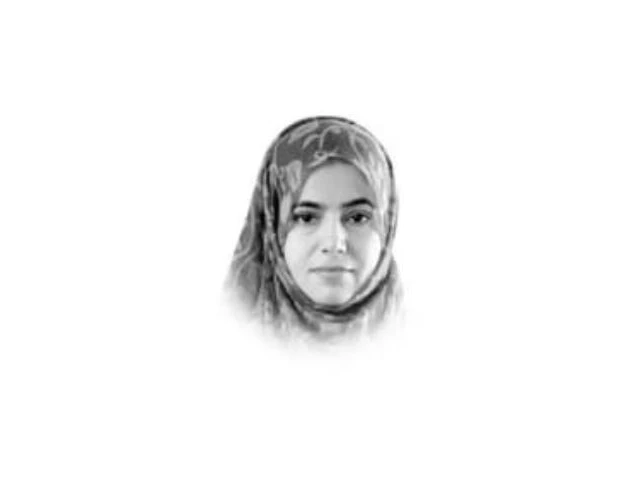Real change for women
.

The evolution of humankind began with the creation of Adam, the first man. However, his existence was incomplete until the creation of Eve, who was given equal status as his companion. From this union, humanity expanded, with men and women playing complementary roles in shaping society.
The discourse on gender equality has been ongoing for centuries. While nature has gifted men with physical strength, women possess softness and beauty. Both genders have their respective roles, yet their rights must remain equal, particularly in areas such as education, health, employment and personal security.
Education is a fundamental right for all, irrespective of gender. Unfortunately, in many parts of the world, including Pakistan, girls are still deprived of education due to societal norms, financial constraints and cultural taboos.
According to reports, millions of girls remain out of school, particularly in rural areas. The enrolment at primary level is 56% for girls and 67% for boys in rural areas. This figure drops at the secondary level, with only 19% of girls and 25% of boys continuing their education. This decline is widening gap in achieving the SDG targets.
Agha Khan III once advised his community that if a couple had two children - a girl and a boy - and could educate only one, they should educate the girl.
Similarly, health is a fundamental right that directly influences the quality of life. Unfortunately, women's health issues, particularly those affecting young girls, are often neglected due to societal stigma and lack of awareness. Maternal mortality remains high due to inadequate healthcare facilities and insufficient medical resources. The adolescent birth rate also remains concerning, with 41 births per 1,000 women aged 1519. Many girls who were married as minors are now mothers, risking their own lives due to early pregnancies and lack of proper healthcare.
Women make up nearly 49% of Pakistan's population, yet their workforce participation remains disproportionately low at around 22%, with only 18% of total labour income going to women. Even among those with higher education, labour force participation is limited, with only 25% of women in the country holding university degrees. Cultural restrictions, workplace harassment and societal expectations prevent many women from pursuing careers. Those who do often face discrimination, gender pay gaps and limited career advancement opportunities. Workplace harassment is a major barrier for women in professional settings.
Girls who fall victim to honour killing in rural areas of the country are highly vulnerable. They are often punished for choosing their life partners, despite having the right to marry a person of their choice, with or without parental consent. This right to choose a partner frequently makes them targets of retribution, often at the hands of their own brothers or fathers. Meanwhile, men can generally choose their partners without facing such consequences.
Another major issue is dowry, which has become a burden on families, causing delayed marriages. Many girls remain unmarried because their families cannot afford to meet dowry demands.
International Women's Day on March 8 (today) is an opportunity to give a voice to vulnerable girls and women who fall victim to societal violence. However, in recent years, the Aurat March has sparked controversy due to provocative slogans that many perceive as contrary to cultural and religious values. While freedom of expression is a fundamental right, the movement should focus on real issues such as education, healthcare, employment, honour killing and harassment rather than divisive rhetoric. The goal should be to unite society in advocating for meaningful reforms for women welfare.
In 2024, Unesco and the UN marked International Women's Day with the theme 'Invest in Women: Accelerate Progress'. For 2025, the theme is 'For ALL Women and Girls: Rights. Equality. Empowerment'.
It is time to prioritise education, health, employment and personal security for women so they can contribute effectively to national development. Instead of engaging in divisive debates, the focus must be on implementing policies and initiatives that uplift women and grant them the dignity, respect and rights they deserve.
















COMMENTS (1)
Comments are moderated and generally will be posted if they are on-topic and not abusive.
For more information, please see our Comments FAQ